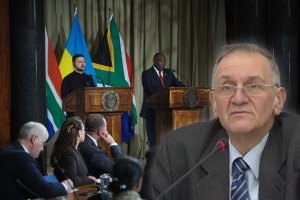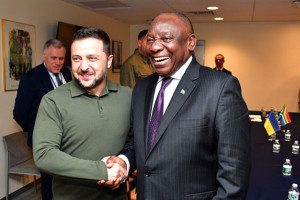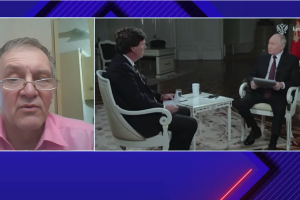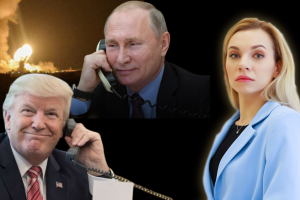Who is an “enemy” to whom in Russia?
In this context, it is important to understand that the respondents in Russia in the framework of the questions posed to them by sociologists more likely assessed the policy of one state (Ukraine) towards another state (Russia) than their subjective attitude towards Ukrainian citizens. This is critical to understand in order to avoid far-reaching extrapolations of polling results and reasoning regarding the rampant Ukrainophobia in Russia. Polling conducted earlier by journalists in Russian cities clearly point to the multilayeredness of the public opinion of Russians, including regarding Ukraine. This gives the impression that Russians do not associate negative assessments of Ukraine directly with Ukrainians or do so only partially.
The overall dynamics of changes in the assessments of Russians of Ukraine within the framework of the recent polling conducted by the Levada-Center over the entire period of monitoring starting in 2006 point more to the political nature of such assessments. If to look at the results of all previous polls, the extremely abrupt changes in Russian public opinion regarding the “hostility of Ukraine” just in 2010 (in comparison with 2009) and in 2014 (also compared to the previous year) when there was a change of political power in Ukraine, immediately strike the eye.
Indeed, if in 2009 during the period of the presidency of Viktor Yushchenko 41% of Russians considered Ukraine a state that was “unfriendly in relation to Russia”, then in 2010, after Viktor Yanukovych was elected the president of Ukraine and the “Kharkiv Accords” were signed, only 13% of Russians held the same opinion (a more than threefold decline over one year). In 2014, not long after the revolutionary events of the Euromaidan and the flight of president Viktor Yanukovych, the pendulum of public opinion in Russia suddenly swung to the opposite side and the number of Russians who consider Ukraine an “enemy” of Russia sharply grew practically threefold to 30% (following 11% in 2013).
Therefore, there are certain grounds to believe that there may not be as many “hardened” opponents of Ukraine in Russia as it might have seemed at first glance. Obviously, there are such opponents, but they do not clearly constitute a majority. Otherwise, we would not have observed such rapid “pirouettes” in the overall dynamics of public opinion in Russia regarding Ukraine.
Herewith, the perception of Ukraine in its neighbor to the northeast is characterized by a high degree of instability and is prone to serious fluctuations tied in a time dimension to changes of a political nature in Ukraine itself. In view of the high degree of trust of Russian citizens in television, on the one hand, and substantial control of television space by the Russian powers, on the other hand, it would be quite logical to presume that the sharp transformations in the opinions of Russians and the formation of an image of “enemies” in their minds are directly associated with the agenda that the Kremlin sets by directives for Russian TV channels based on its political propaganda objectives.
For our country the results of polls in accordance with which Ukraine is perceived by Russians as one of Russia’s key “enemies” do not hail anything good and could even conceal potential threats. In view of the constantly growing aspirations of the current Russian leadership to strengthen its weakening political regime, first and foremost, through a search for and counteraction of “external enemies”, Ukraine could again end up being the main target of attacks or routine aggressive provocations on the part of neighboring Russian state.
Original: Novoye Vremya (The New Times)








